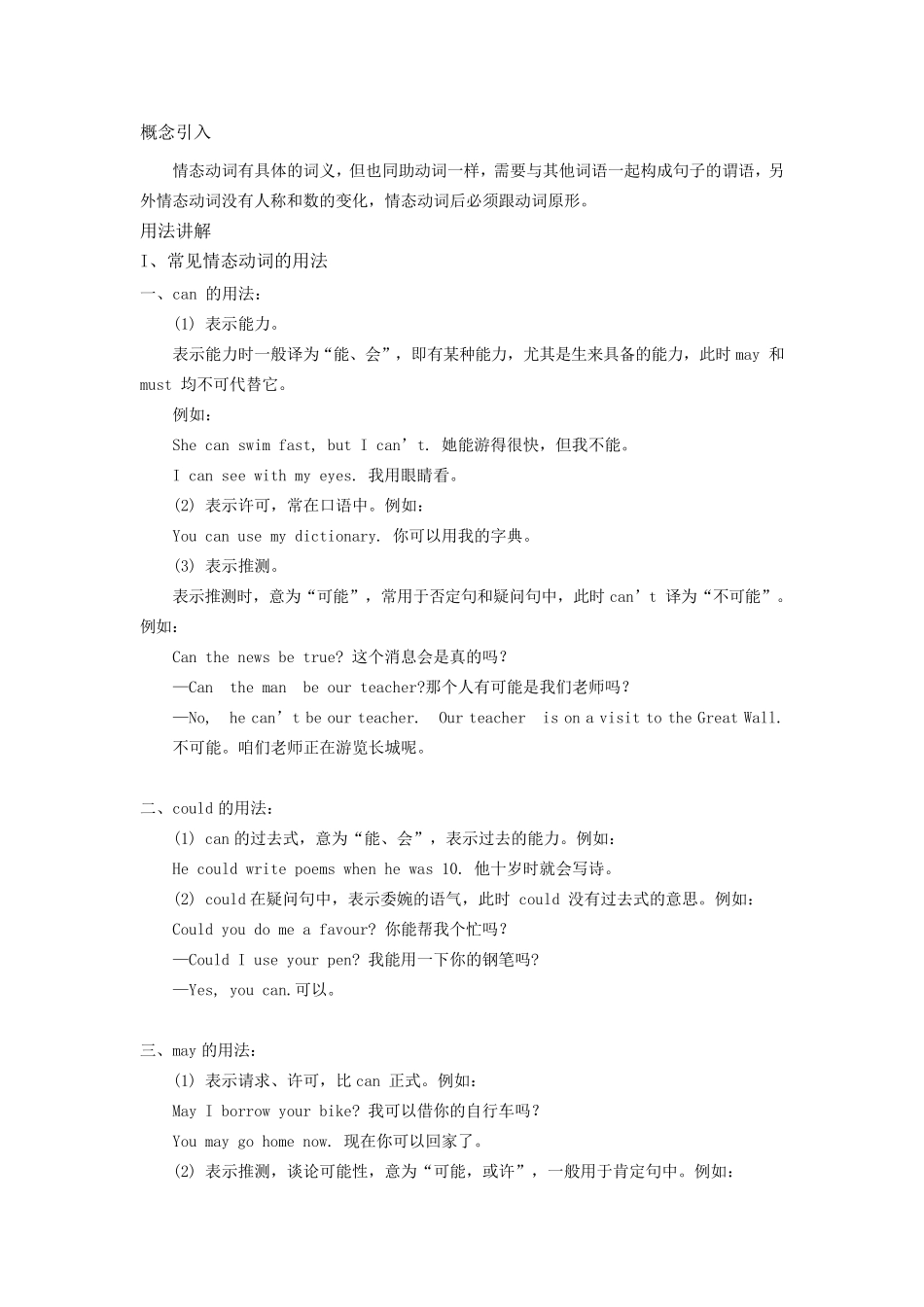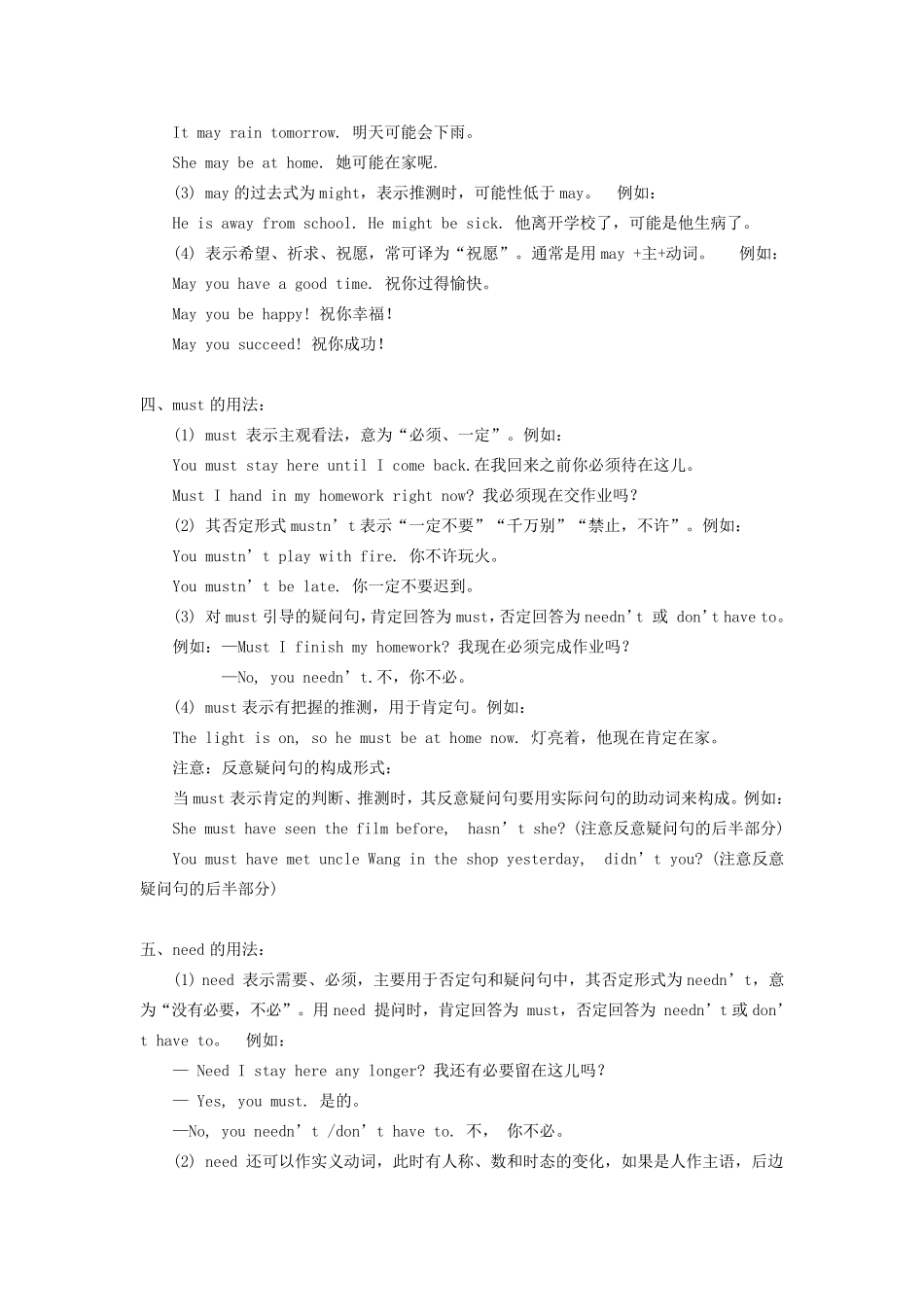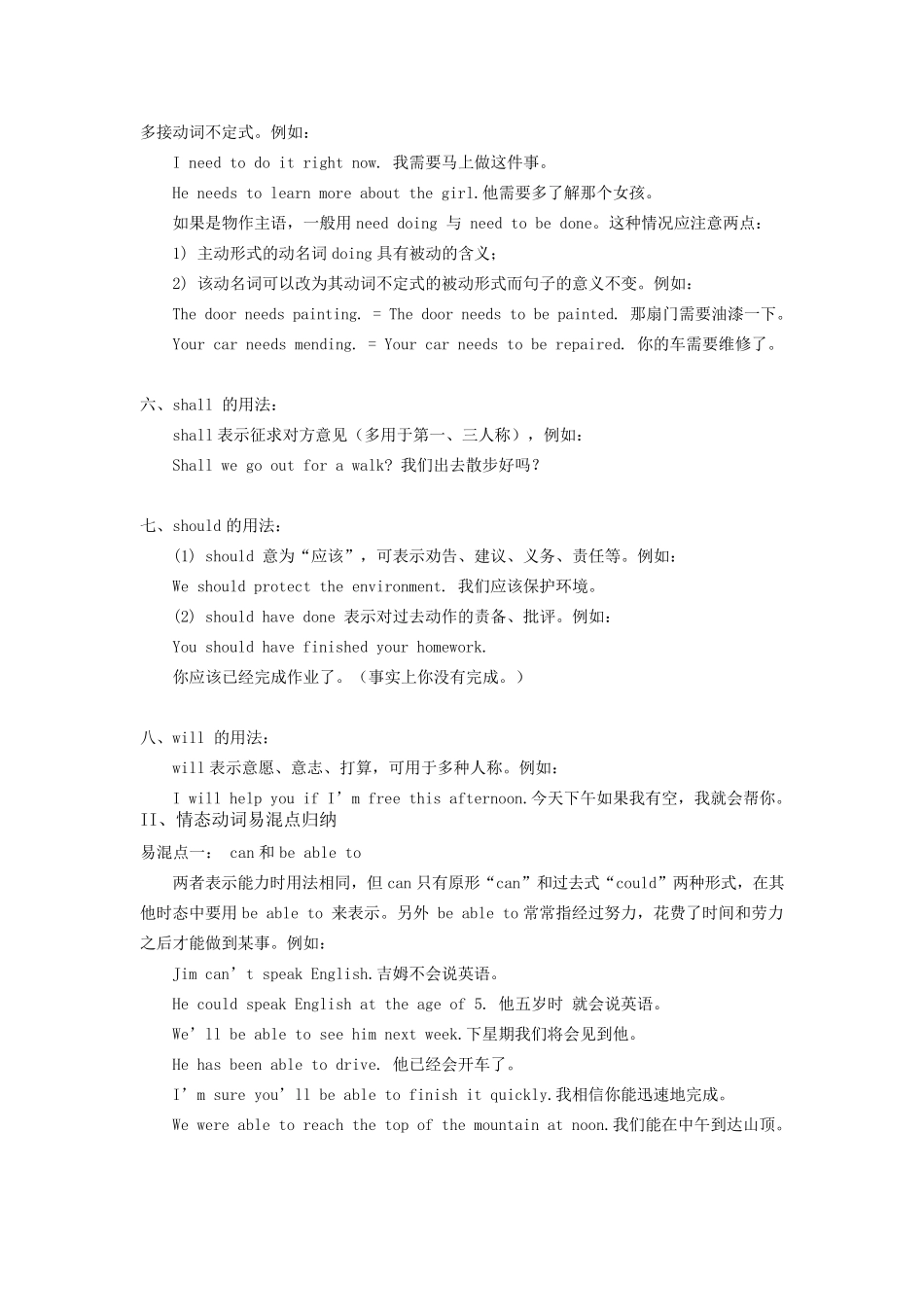概念引入 情态动词有具体的词义,但也同助动词一样,需要与其他词语一起构成句子的谓语,另外情态动词没有人称和数的变化,情态动词后必须跟动词原形。 用法讲解 I、常见情态动词的用法 一、can 的用法: (1) 表示能力。 表示能力时一般译为“能、会”,即有某种能力,尤其是生来具备的能力,此时may 和must 均不可代替它。 例如: She can swim fast, but I can’t. 她能游得很快,但我不能。 I can see with my eyes. 我用眼睛看。 (2) 表示许可,常在口语中。例如: You can use my dictionary. 你可以用我的字典。 (3) 表示推测。 表示推测时,意为“可能”,常用于否定句和疑问句中,此时can’t 译为“不可能”。例如: Can the news be true? 这个消息会是真的吗? —Can the man be our teacher?那个人有可能是我们老师吗? —No, he can’t be our teacher. Our teacher is on a visit to the Great Wall. 不可能。咱们老师正在游览长城呢。 二、could 的用法: (1) can 的过去式,意为“能、会”,表示过去的能力。例如: He could write poems when he was 10. 他十岁时就会写诗。 (2) could 在疑问句中,表示委婉的语气,此时 could 没有过去式的意思。例如: Could you do me a favour? 你能帮我个忙吗? —Could I use your pen? 我能用一下你的钢笔吗? —Yes, you can.可以。 三、may 的用法: (1) 表示请求、许可,比can 正式。例如: May I borrow your bike? 我可以借你的自行车吗? You may go home now. 现在你可以回家了。 (2) 表示推测,谈论可能性 ,意为“可能,或 许”,一般用于肯 定句中。例如: It may rain tomorrow. 明天可能会下雨。 She may be at home. 她可能在家呢. (3) may 的过去式为might,表示推测时,可能性低于may。 例如: He is away from school. He might be sick. 他离开学校了,可能是他生病了。 (4) 表示希望、祈求、祝愿,常可译为“祝愿”。通常是用may +主+动词。 例如: May you have a good time. 祝你过得愉快。 May you be happy! 祝你幸福! May you succeed! 祝你成功! 四、must 的用法: (1) must 表示主观看法,意为“必须、一定”。例如: You must stay here until I come back.在我回来...


